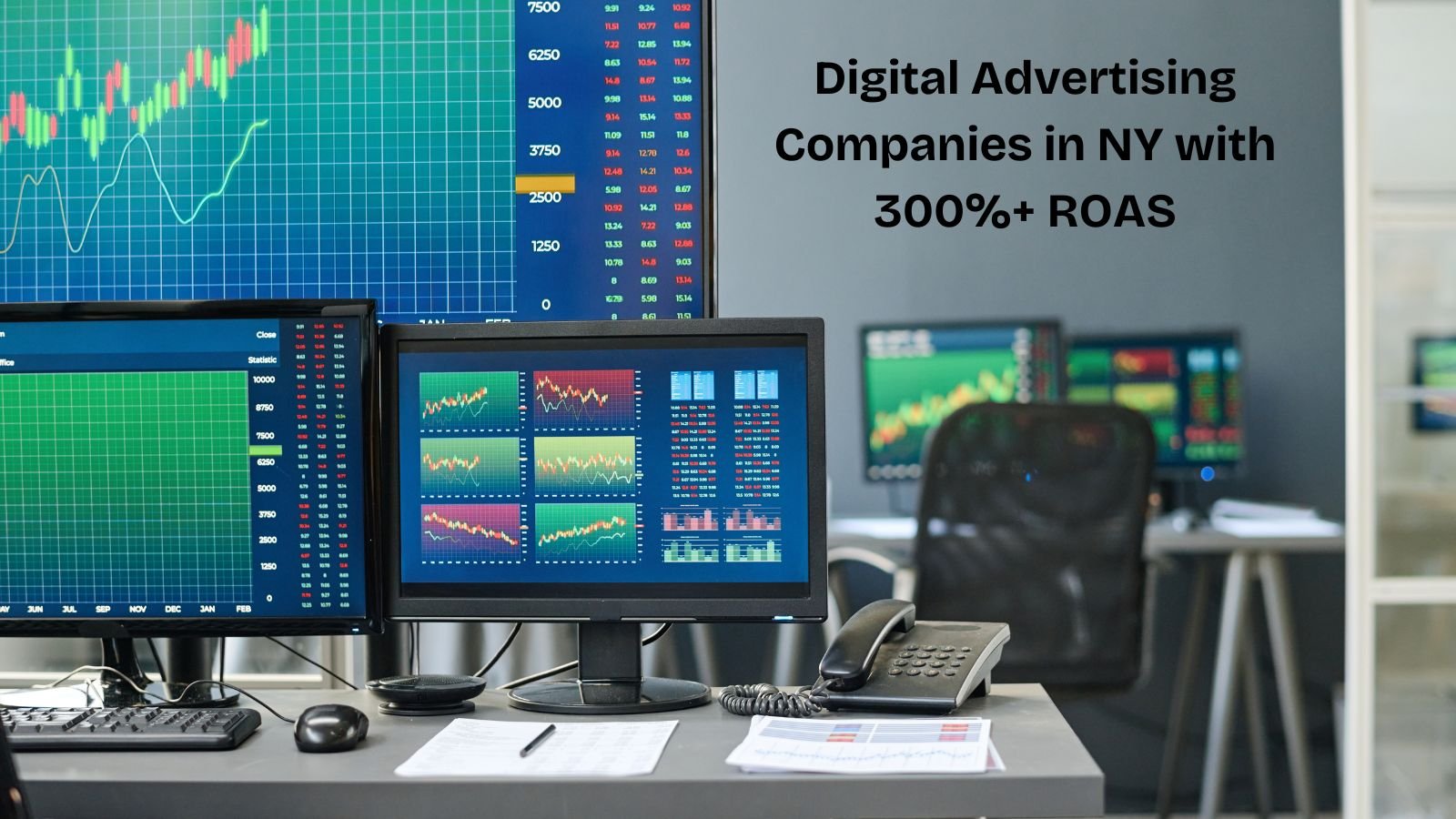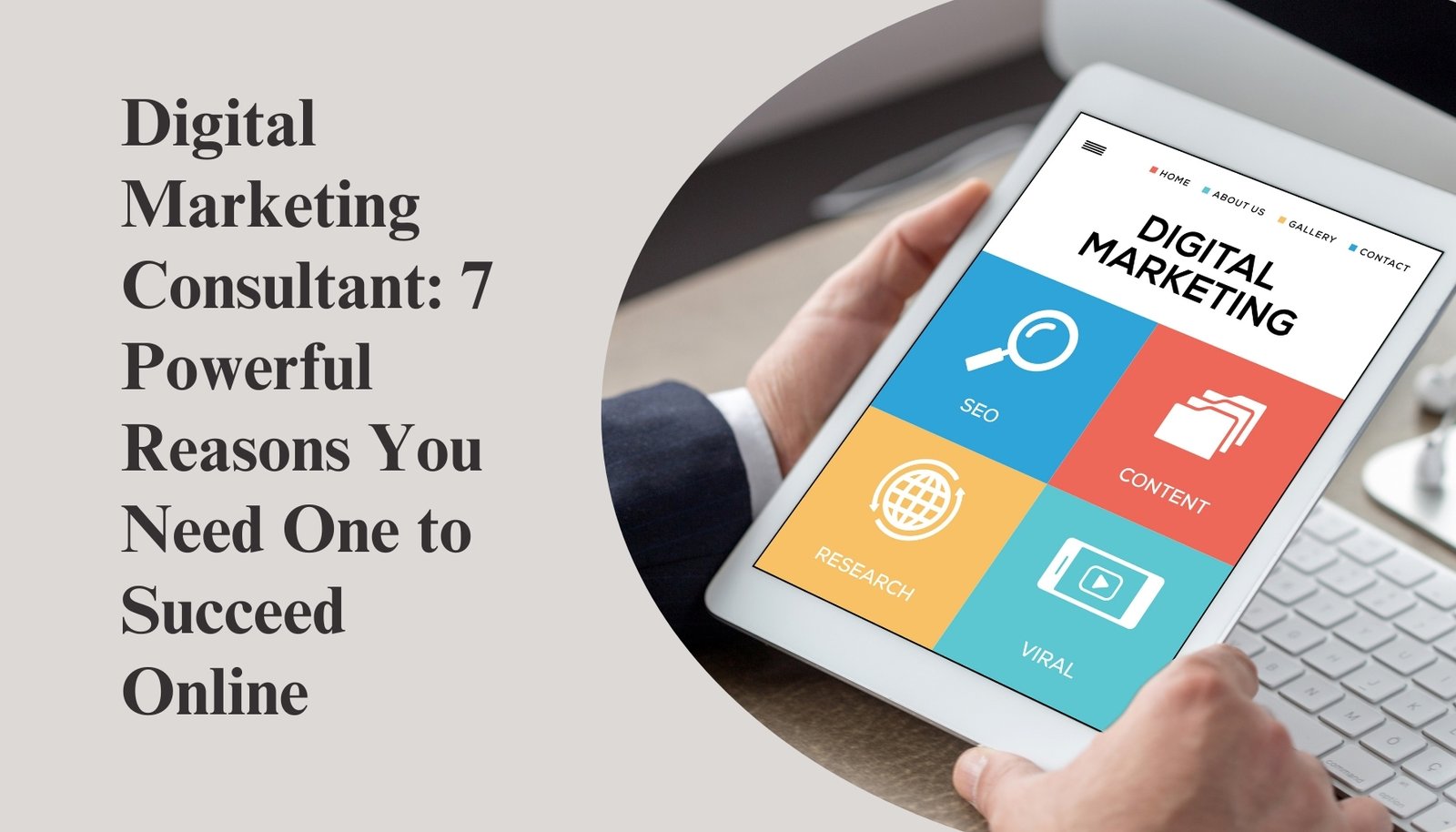The digital marketing landscape is evolving rapidly, and businesses must adapt to stay competitive. Digital marketing platforms play a crucial role in helping brands enhance online visibility, increase engagement, and drive conversions. As we step into 2025, new technologies and trends are set to redefine digital marketing. Understanding these changes is vital for businesses that want to maintain a strong online presence and maximize their marketing ROI.

In this comprehensive guide, we will explore the top five digital marketing trends that will shape the future. We will also discuss how digital marketing platforms can help businesses implement these trends effectively. From AI-powered automation to hyper-personalization and blockchain integration, this blog will provide deep insights into the most important trends in digital marketing for 2025.
The Importance of Digital Marketing Platforms
Before diving into the trends, it’s essential to understand why digital marketing platforms are vital for business success. These platforms provide businesses with the tools they need to effectively reach their target audiences, engage with customers, and drive revenue growth. They facilitate data-driven decision-making, optimize marketing strategies, and enhance customer experiences.
What Are Digital Marketing Platforms?
A digital marketing platform is a software solution that helps businesses manage, execute, and analyze digital marketing campaigns across various online channels. These platforms integrate multiple marketing tools, such as SEO, PPC, content marketing, social media management, and email marketing, into a single interface, making it easier for businesses to track and optimize their efforts.
Key Functions of Digital Marketing Platforms
- Campaign Management: Allows businesses to plan, launch, and track marketing campaigns across different channels.
- Customer Relationship Management (CRM): Helps businesses maintain and nurture customer relationships through automated workflows and personalized interactions.
- Marketing Automation: Streamlines repetitive tasks like email marketing, social media posting, and ad management to improve efficiency.
- Data Analytics & Reporting: Provides insights into customer behavior, campaign performance, and ROI to inform future marketing strategies.
- Search Engine Optimization (SEO): Enhances website visibility by optimizing content, keywords, and backlinks.
- Paid Advertising Management: Enables businesses to run and optimize PPC campaigns on platforms like Google Ads and Facebook Ads.
Benefits of Digital Marketing Platforms
Using digital marketing platforms offers several advantages that contribute to business success:
1. Automation and Efficiency
- Reduces manual effort by automating marketing tasks such as email campaigns, ad placements, and social media scheduling.
- Saves time and resources, allowing businesses to focus on strategy and creativity.
2. Data-Driven Insights
- Provides real-time analytics on campaign performance, customer engagement, and conversion rates.
- Helps marketers make informed decisions and optimize strategies for better ROI.
3. Personalization
- Uses AI-driven insights to deliver targeted content and offers to specific customer segments.
- Improves customer engagement and retention by providing relevant and timely marketing messages.
4. Multi-Channel Integration
- Allows businesses to manage multiple marketing channels, including websites, social media, email, and paid ads, from a single platform.
- Ensures a consistent brand message across different channels and touchpoints.
5. Performance Tracking
- Monitors key performance indicators (KPIs) such as website traffic, conversion rates, and customer engagement.
- Enables businesses to measure the effectiveness of their marketing efforts and make necessary adjustments.

Popular Digital Marketing Platforms
Businesses can choose from a wide range of digital marketing platforms based on their specific needs. Some of the most widely used platforms include:
- Google Ads: Best for paid advertising and search engine marketing (SEM).
- HubSpot: Offers comprehensive inbound marketing, CRM, and automation tools.
- Marketo: Ideal for email marketing, automation, and customer engagement.
- Semrush: Best for SEO optimization, keyword research, and competitive analysis.
- Salesforce Marketing Cloud: Provides advanced customer segmentation, AI-driven analytics, and personalized marketing solutions.
- Hootsuite: Excellent for social media management and scheduling.
- Mailchimp: Best for email marketing and automation for small businesses.
By leveraging the right digital marketing platforms, businesses can improve their marketing efficiency, reach their target audiences more effectively, and achieve sustainable growth in the digital landscape.hat leverage these platforms can enhance their marketing efficiency and gain a competitive edge.
Top Five Digital Marketing Trends for 2025
1. AI-Powered Marketing Automation
Artificial Intelligence (AI) is revolutionizing digital marketing platforms by enabling smarter automation, enhanced personalization, and real-time data analysis. AI-powered tools analyze consumer behavior, optimize campaigns, and improve engagement without human intervention. These technologies help businesses automate repetitive tasks, enhance customer interactions, and boost efficiency across multiple marketing channels.
Key Benefits of AI in Digital Marketing
1. Automated Content Creation
- AI tools such as OpenAI’s GPT models and Jasper AI generate high-quality blog posts, social media captions, and ad copies.
- Helps marketers save time and maintain a consistent content publishing schedule.
- AI-driven video and image generation tools, like Canva’s AI design assistant, create engaging visuals for social media campaigns.
2. Advanced Customer Segmentation
- AI categorizes audiences based on demographics, behavior, purchase history, and online interactions.
- Enables hyper-personalized marketing campaigns that target specific customer needs and preferences.
- Increases engagement and conversion rates by delivering tailored content to the right audience.
3. Predictive Analytics
- AI-powered tools analyze past trends and predict future consumer behavior, helping marketers refine their strategies.
- Enables businesses to anticipate market shifts, identify potential opportunities, and mitigate risks.
- Predictive lead scoring helps prioritize high-value customers, improving sales efficiency.
4. Real-Time Campaign Optimization
- AI-powered algorithms continuously analyze ad performance and make real-time adjustments to maximize ROI.
- Dynamic content personalization ensures that website visitors see content tailored to their interests.
- AI chatbots engage customers instantly, providing real-time assistance and improving user experience.
5. Conversational AI & Chatbots
- AI-driven chatbots like Drift, ChatGPT, and Intercom provide instant responses to customer queries.
- Improves customer service efficiency by handling FAQs, booking appointments, and providing personalized product recommendations.
- Reduces workload on customer support teams and enhances user engagement.
Best AI-Powered Digital Marketing Platforms
- HubSpot:
- AI-driven content optimization for blogs and social media.
- Smart CRM integration for personalized email marketing.
- Predictive lead scoring to identify high-converting customers.
- Marketo:
- Automated email marketing workflows.
- AI-powered lead nurturing and segmentation.
- Real-time customer engagement tracking.
- Salesforce Marketing Cloud:
- AI-based analytics and customer behavior prediction.
- Automated customer journeys with personalized content.
- Advanced social media listening and sentiment analysis.
- Google Ads (AI-Powered):
- Automated bidding strategies to maximize ad performance.
- AI-driven audience targeting for PPC campaigns.
- Dynamic search ads that generate headlines based on user queries.
- ChatGPT & Drift (AI-Powered Chatbots):
- Enhances customer support and engagement.
- Provides 24/7 real-time assistance to website visitors.
- Integrates with CRM systems to offer personalized recommendations.
By integrating AI into digital marketing platforms, businesses can improve efficiency, boost engagement, and increase conversion rates. AI-powered automation is no longer a luxury but a necessity for marketers looking to stay ahead in 2025.
2. Voice Search Optimization
With the increasing popularity of voice assistants like Alexa, Google Assistant, and Siri, voice search is becoming a major digital marketing trend. Businesses must optimize their digital marketing platforms for voice search to remain relevant and improve their online visibility. Voice search optimization queries are typically longer and more conversational than text searches, making it essential for businesses to adapt their content accordingly.
Why Voice Search Optimization Matters
- Growing Adoption of Smart Assistants: More users are using smart speakers and mobile assistants for search queries.
- Mobile-First Experience: Most voice searches happen on mobile devices, making mobile optimization essential.
- Local SEO Impact: Many voice searches have local intent, such as “best coffee shop near me.”
- Changing Search Behavior: Users tend to ask full questions rather than typing short keywords.
How to Optimize for Voice Search
1. Use Conversational Keywords
- Voice search queries are more natural and longer than typed queries.
- Focus on long-tail keywords that reflect real speech patterns.
- Example: Instead of “best smartphones 2025,” optimize for “What are the best smartphones to buy in 2025?”
2. Optimize for Featured Snippets
- Voice assistants often read answers directly from Google’s “Position Zero.”
- Use clear, structured answers to common questions in your content.
- Format content using bullet points, lists, and short paragraphs for better visibility.
3. Implement Local SEO Strategies
- Many voice searches are location-based (e.g., “best Italian restaurant near me”).
- Ensure your business is listed on Google My Business and other local directories.
- Use location-specific keywords and phrases in your content.
4. Improve Website Speed & Mobile Optimization
- Voice search is predominantly used on mobile devices, so a fast-loading, mobile-friendly website is crucial.
- Use responsive design, optimize images, and reduce unnecessary scripts.
5. Structure Content with FAQ Sections
- Voice searches often start with “Who,” “What,” “Where,” “When,” “Why,” and “How.”
- Create a dedicated FAQ section to address common queries in a conversational tone.
- Example: Instead of “Digital marketing services,” use “What are the best digital marketing services for small businesses?”
6. Leverage Schema Markup
- Implement structured data (schema markup) to help search engines understand your content.
- Schema markup enhances rich results, increasing the chances of appearing in voice search responses.
7. Optimize for Multimodal Search
- As AI-powered search engines evolve, voice and visual search are merging.
- Ensure your content is optimized for both voice queries and image searches.
- Example: Optimize product descriptions for both text and voice search queries.
Best Tools for Voice Search Optimization
- Google Search Console: Analyzes search performance and identifies voice search trends.
- AnswerThePublic: Helps find common voice search questions users ask.
- SEMrush & Ahrefs: Provides insights into long-tail and conversational keywords.
- Schema.org Markup Generator: Helps implement structured data for better visibility in search results.
- Google My Business: Essential for local SEO and voice search optimization.
By optimizing digital marketing platforms for voice search, businesses can stay ahead of the curve and ensure their content is accessible to a growing audience of voice search users.
3. Interactive and Immersive Content
Consumer engagement is key in digital marketing, and interactive content enhances user experience. Digital marketing platforms are now integrating augmented reality (AR), virtual reality (VR), and other interactive formats to boost engagement and conversions.
Types of Interactive Content
- 360-Degree Videos: Provide an immersive way to showcase products, real estate, and experiences.
- Live Polls & Quizzes: Increase engagement and encourage audience participation.
- AR-Powered Ads: Allow users to visualize products before purchasing, improving decision-making.
- Shoppable Posts: Enable customers to purchase directly from social media content.
- Interactive Infographics & Calculators: Offer personalized insights and boost engagement.
Benefits of Interactive Content
- Higher Engagement: Encourages users to interact, leading to longer session times.
- Better Brand Recall: Creates a memorable experience that improves customer retention.
- Increased Conversions: Engaged users are more likely to take action, such as making a purchase or signing up.
- Enhanced Personalization: Tailors content based on user interactions, improving relevance.
Best Tools for Interactive Content
- Canva & Visme: Create engaging infographics and interactive designs.
- ThingLink: Develop 360-degree images and interactive videos.
- Adobe Aero & Spark AR: Build AR-powered ads and experiences.
- Outgrow & Qzzr: Generate interactive quizzes and calculators.
Interactive and immersive content is shaping the future of digital marketing platforms, providing businesses with innovative ways to engage their audiences and drive conversions.
4. Blockchain in Digital Marketing
Blockchain technology is transforming digital marketing platforms by ensuring transparency, security, and efficiency. It helps eliminate fraud, enhances data privacy, and builds trust between advertisers and consumers.
Key Applications of Blockchain
- Smart Contracts for Ad Transparency: Automates payments and verifies ad metrics to prevent fraud.
- Secure Digital Identity Management: Enhances data protection and reduces identity theft.
- Decentralized Advertising Networks: Eliminates third-party intermediaries, lowering costs and improving efficiency.
- Token-Based Loyalty Programs: Encourages customer engagement with secure and trackable rewards.
- Immutable Data Tracking: Ensures the accuracy and reliability of marketing analytics.
Blockchain is shaping the future of digital marketing platforms by making transactions more secure, verifiable, and trustworthy.
5. Hyper-Personalization with Big Data
Hyper-personalization takes traditional marketing personalization to the next level by using AI and big data to tailor content in real-time. Digital marketing platforms analyze user behavior, preferences, and interactions to deliver highly relevant experiences.
How to Achieve Hyper-Personalization
- AI-Powered Chatbots: Provide instant, personalized customer support.
- Predictive Analytics: Analyzes past behavior to forecast customer preferences.
- Behavioral Segmentation: Categorizes users based on browsing habits and engagement levels.
- Dynamic Email Content: Adjusts messages based on user interests and past interactions.
- Personalized Product Recommendations: Uses AI to suggest relevant products and services.
By leveraging big data, digital marketing platforms enable businesses to create highly customized experiences, increasing customer engagement and conversion rates.
People Also Ask
| Question | Answer |
|---|---|
| What are digital marketing platforms? | They are tools that help businesses manage online marketing efforts across SEO, PPC, content marketing, and social media. |
| How do AI-driven digital marketing platforms work? | They analyze user data to optimize marketing campaigns and automate tasks. |
| Why is voice search important in digital marketing platforms? | It helps businesses reach a growing number of voice assistant users. |
| How can blockchain improve digital marketing platforms? | By ensuring transparency, security, and fraud prevention in digital advertising. |
FAQs
1. What are the best digital marketing platforms for 2025?
Some of the best digital marketing platforms include Google Ads, HubSpot, Marketo, Semrush, and Salesforce Marketing Cloud. These platforms offer automation, AI-driven analytics, and multi-channel marketing tools.
2. How do digital marketing platforms help in business growth?
They help businesses streamline marketing efforts, target the right audience, and increase conversion rates through automation and data analytics.
3. What role does AI play in digital marketing platforms?
AI enhances digital marketing platforms by automating marketing tasks, optimizing content, and providing data-driven insights.
4. How can businesses integrate blockchain into digital marketing platforms?
Blockchain can be used for secure transactions, fraud prevention, and transparent ad tracking in digital marketing.
5. Why is hyper-personalization crucial in digital marketing platforms?
Hyper-personalization improves user engagement and conversions by delivering customized experiences based on individual user data.
Conclusion
To stay competitive in 2025, businesses must embrace the latest trends in digital marketing platforms. AI-powered automation, voice search optimization, interactive content, blockchain technology, and hyper-personalization are shaping the future of digital marketing. By leveraging these trends, businesses can enhance their digital marketing strategies, boost customer engagement, and achieve sustainable growth.
As a leading digital marketing platform provider, we help businesses navigate the evolving digital landscape. Contact us today with this link to discover the best strategies for your brand!















